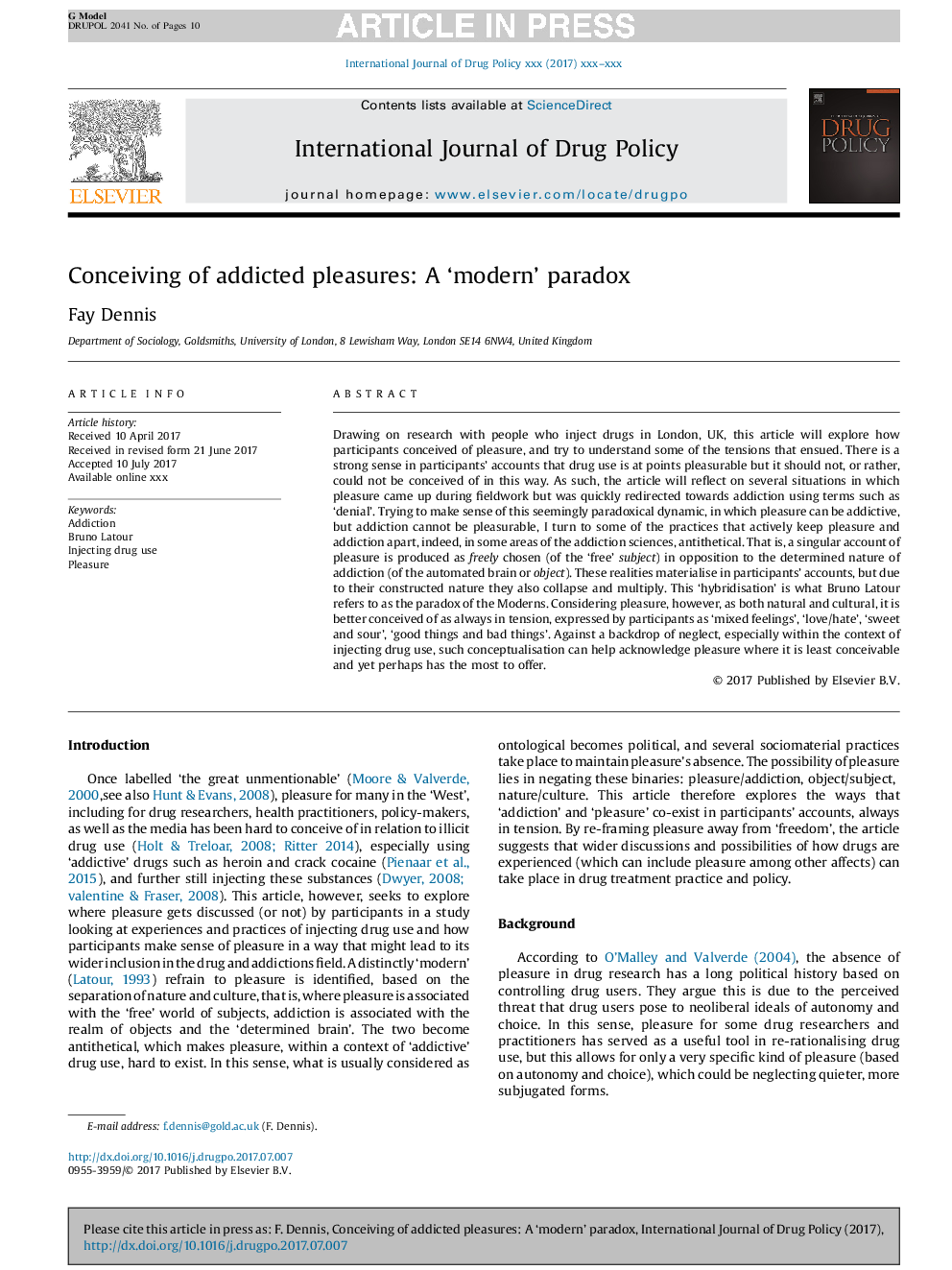| کد مقاله | کد نشریه | سال انتشار | مقاله انگلیسی | نسخه تمام متن |
|---|---|---|---|---|
| 7512443 | 1486256 | 2017 | 10 صفحه PDF | دانلود رایگان |
عنوان انگلیسی مقاله ISI
Conceiving of addicted pleasures: A 'modern' paradox
ترجمه فارسی عنوان
تصور لذت های معتاد: پارادوکس مدرن
دانلود مقاله + سفارش ترجمه
دانلود مقاله ISI انگلیسی
رایگان برای ایرانیان
کلمات کلیدی
اعتیاد، برونو لاتر، مصرف تزریقی مواد مخدر، لذت،
موضوعات مرتبط
علوم پزشکی و سلامت
پزشکی و دندانپزشکی
روانپزشکی و بهداشت روانی
چکیده انگلیسی
Drawing on research with people who inject drugs in London, UK, this article will explore how participants conceived of pleasure, and try to understand some of the tensions that ensued. There is a strong sense in participants' accounts that drug use is at points pleasurable but it should not, or rather, could not be conceived of in this way. As such, the article will reflect on several situations in which pleasure came up during fieldwork but was quickly redirected towards addiction using terms such as 'denial'. Trying to make sense of this seemingly paradoxical dynamic, in which pleasure can be addictive, but addiction cannot be pleasurable, I turn to some of the practices that actively keep pleasure and addiction apart, indeed, in some areas of the addiction sciences, antithetical. That is, a singular account of pleasure is produced as freely chosen (of the 'free' subject) in opposition to the determined nature of addiction (of the automated brain or object). These realities materialise in participants' accounts, but due to their constructed nature they also collapse and multiply. This 'hybridisation' is what Bruno Latour refers to as the paradox of the Moderns. Considering pleasure, however, as both natural and cultural, it is better conceived of as always in tension, expressed by participants as 'mixed feelings', 'love/hate', 'sweet and sour', 'good things and bad things'. Against a backdrop of neglect, especially within the context of injecting drug use, such conceptualisation can help acknowledge pleasure where it is least conceivable and yet perhaps has the most to offer.
ناشر
Database: Elsevier - ScienceDirect (ساینس دایرکت)
Journal: International Journal of Drug Policy - Volume 49, November 2017, Pages 150-159
Journal: International Journal of Drug Policy - Volume 49, November 2017, Pages 150-159
نویسندگان
Fay Dennis,
